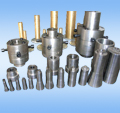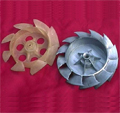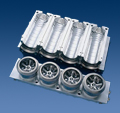

| Address: | PDS Enterprise Inc. 1650 West Artesia Blvd, Suite 278 Gardena, CA90248 |
| Phone: | 1-843-408-0142 |
| Email: | pdsenterprise@gmail.com sales@coolprototyping.com |


Home>Popular Page
1. Medical researchers adopt 3D rapid prototyping technology
The partnership, between medical and engineering researchers from the University of Warwick's Institute of Digital Healthcare and rapid prototyping technology specialists Industrial Plastic Fabrications, will use an Objetion Connex500 3D printer.Warwick's Dr Greg Gibbons said that the advantage of this machine is that, in a single build process, it can print parts and assemblies made of several materials with differing mechanical and physical properties.
"The partnership will have one of the few machines capable of producing this advanced form of rapid prototyping," he added. "This is a unique combination in Europe which will certainly produce significant practical advances in this area of health care technology."
He said it will allow medical researchers and consultants to generate anatomical models that go far beyond being a simple single rigid block of plastic. For example, in a single pass it could create a 3D replica of a body part, displaying elements such as skin, blood vessels and muscles in a range of different colors and textures.
Here are some samples we have done before, please kindly take a look:
Home - Popular Page - Popular Page1
 We are constantly looking for new products in order to grow our business and Invention Home has enabled us to streamline that process much more quickly.
We are constantly looking for new products in order to grow our business and Invention Home has enabled us to streamline that process much more quickly. Marsha Dunmyre
CA, U.S.A
BROWSE MORE
Cool Prototyping provides "one-stop" product design service: rapid prototyping, plastic molds, custom molds, production tooling and plastic molding.
Cool Prototyping Copyright 2008-2009 © All Rights Reserved. Rapid Prototyping
Cool Prototyping Copyright 2008-2009 © All Rights Reserved. Rapid Prototyping






